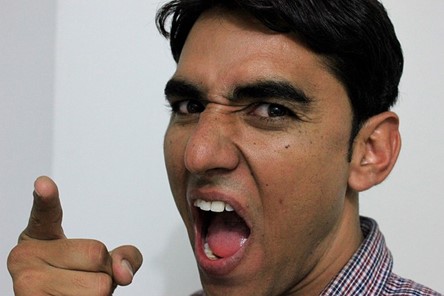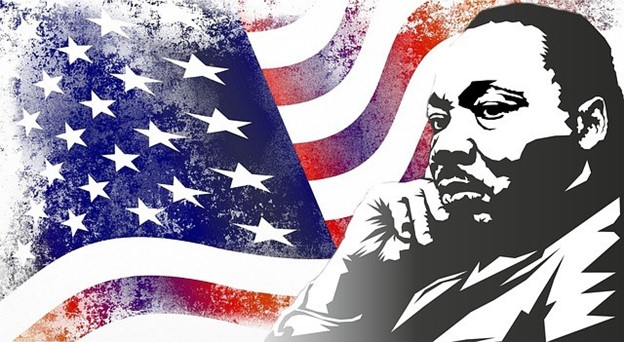
Pride is often described as bad. It’s associated with overconfidence,1 ego, and arrogance. Pride is sometimes at the root of racism and xenophobia.2 It can blind us to our shortcomings, leading to failure. “Pride cometh before the fall,” they say.
But pride can also be good. Being proud of who you are helps you stand up for yourself when others put you down. Being proud of your hard work reinforces a positive self-image,3 helping you see yourself as a hard worker, which makes it easier to embody that identity in the future. And I personally advocate for pride journaling – a habit of writing down things you’re proud of yourself for doing.
So what are we to make of this dichotomy?
Is pride good or bad?
Good Pride vs. Bad Pride
The bad form of pride is what I call “ego pride.” Ego pride is arrogant. It causes you to see yourself as better than other people. Ego pride boasts, bragging about your accomplishments to make sure everyone knows how great you are. Ego pride is entitled, making you feel like the world owes you something.

The good form of pride is what I call “humble pride.” At first, this looks like an oxymoron. How can you be humble and proud at the same time? The answer: By being humble about who you are and proud of the choices you’ve made.
Humble pride makes no assumptions about the outcomes you supposedly deserve. You put in the effort, knowing that the outcome is outside of your control. You may or may not be rewarded for your hard work. You might receive good luck or bad. The job, promotion, or contract could go to someone else. You could lose the election. All you can control is whether or not you do your best.
Humble pride is quiet. It lets effort and accomplishment speak for themselves. It’s unconcerned whether or not anyone knows what you’ve done. As long as you’re living in line with your values, you can be proud of yourself.
Process-Based Pride

Another way to look at this distinction is to think of humble pride as being process-based pride. It’s feeling good about your efforts – past, present, and future. This kind of pride says, “I can do hard things and make tough choices. I’ve done so in the past, I’m doing so right now, and I will continue to do so in the future.”
When ego pride says, “I’m a great athlete,” humble pride says, “I’m working hard to become stronger and more skilled at my sport.”
Ego pride says, “I’m smart,” and humble pride says, “I’m dedicated to learning, and I’m trying to make smart choices.”
While ego pride says, “I’m better than other people,” humble pride says, “I’m striving to become better than who I used to be.”
This kind of pride aligns perfectly with having a process-based identity, which is a core part of having a growth mindset.
Ego Pride Makes You More Likely to Fail
As Ryan Holiday notes in Ego is the Enemy, ego pride “blunts the very instrument we need to own in order to succeed: our mind. Our ability to learn, to adapt, to be flexible, to build relationships, all of this is dulled by [ego] pride.”4 In other words, it makes you stupider and less effective.
Ego pride is overconfident, saying things like:
- “I am an entrepreneur because I struck out on my own.
- I am going to win because I am currently in the lead.
- I am a writer because I published something.
- I am rich because I made some money.
- I am special because I was chosen.
- I am important because I think I should be.”4
Such thoughts discourage you from doing the hard work that leads to success. Instead of keeping your eyes on the process, you focus on the prize you supposedly deserve.
Ego pride makes it hard to “Receive feedback, maintain hunger, and chart a proper course in life,” and “it tunes up other negative parts of ourselves: sensitivity, a persecution complex, the ability to make everything about us.”4 We become incapable of listening to criticism and unwilling to change our ways. This unhealthy pride can make us appear narcissistic, short-tempered, and tyrannical.

Ego pride makes you unable to accept failure, unwilling to admit your mistakes. You stubbornly stay the course, even as all signs indicate it’s the wrong way. Or worse, you double down on a bad idea or an unhealthy lifestyle. And when things blow up, ego pride makes you lie to cover up your mistakes. You’ll blame everyone else before you ever blame yourself.
The antidote to this is humility:
“The question to ask, when you feel [ego] pride, then is this: What am I missing right now that a more humble person might see?” –Ryan Holiday4
National Pride
National pride is an excellent example of the distinction between good pride and bad pride.
You can be proud of your country because of the good we’ve done in the world and how far we’ve come, while still working to make things better. This kind of pride is what I’ve called “growth mindset patriotism.” It encourages us to see our nation as a work in progress. We can simultaneously feel good about what we’ve already accomplished and recognize the need for continued improvement.

On the other hand, you can simply be proud of your nation as a matter of principle – as a matter of identity. This kind of national pride puts your country above other nations. It sees our way of life as superior, our people as special, and our needs as more important. It’s arrogant and misguided. People clinging to this kind of national pride refuse to examine our nation’s shortcomings, saying “love it or leave it.”5 They resist efforts to change things for the better and long for a return to an idealized past. Indeed, some “proud Americans” embody a sort of hyper-nationalism that is disturbingly reminiscent of fascism.6
But is it ever good to be proud of who you are?
Healthy Identity Pride

LGBTQ pride is ostensibly about being proud of who you are, and I certainly think it’s a healthy form of identity pride. But if we look more closely at it, we can see that it’s really about being proud of choosing to be true to yourself and to live openly, in spite of some people’s bigotry, and it’s about being proud of yourself for engaging in the process of fighting for equality, dignity, and respect.
And I think if we look closely at any healthy form of identity pride we’ll find that it’s less about pride in something outside of your control and more about pride in your efforts – in how you’re choosing to live.
The proud black woman, living her life in defiance of racism and sexism.
The proud scholar, reflecting on how hard they worked to graduate.
Even the proud American – proud for the right reasons – fighting to make this country and the world a better place for everyone.
1 van Ginneken, J. (2014). PRIDE and over-confidence. In: The Psychology of Power. Palgrave Macmillan, London. https://doi.org/10.1057/9781137454034_8
2 Ghecea, L. (2022). The Role of Racial/Ethnic Pride in Relation to Racism/Ethnocentrism. UC Merced Undergraduate Research Journal, 14(1). http://dx.doi.org/10.5070/M414157325
3 Tracy, J. L., Cheng, J. T., Robins, R. W., & Trzesniewski, K. H. (2009). Authentic and Hubristic Pride: The Affective Core of Self-esteem and Narcissism. Self and Identity, 8(2–3), 196–213. https://doi.org/10.1080/15298860802505053
4 Holiday, Ryan. Ego is the Enemy. Portfolio, 2016.
5 Hinkley, David. “‘Love It or Leave It’: Resurrecting the Worst of America’s Political Legacy.” Medium. Jul 15, 2019.
6 Kitts, M. (2021). Proud Boys, Nationalism, and Religion. Journal of Religion and Violence, 9(1), 12–32.
